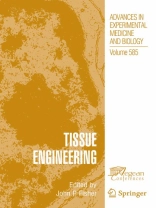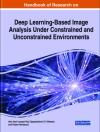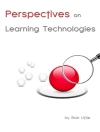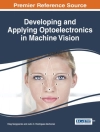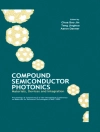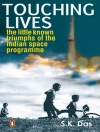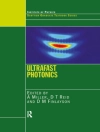This special issue of Advances in Experimental Medicine and Biology includes much of the research presented at the recent Second International Tissue Engineering Conference. Held in Crete, Greece, as part of the Aegean Conference Series, the Second International Tissue Engineering Conference was organized by Dr. Kiki Hellman of the Hellman Group, Dr. John Jansen of the Nijmegen University Medical Center, and Dr. Antonios Mikos of Rice University. The conference brought over 150 researchers from around the world to the Knossos Royal Village Conference Center in Crete from May 22 to 27, 2005. Following along the lines of the conference program, this volume is divided into seven sections, focusing on stem cells, signals, scaffolds, applied technologies, animal models, regulatory issues, as well as specific tissue engineering strategies. Both original research papers and review papers are presented. The chapters reflect a diverse group of authors, including both clinicians and academicians. Furthermore, the issue contains — pers from Asia, Australia, Europe, and North America, demonstrating the international component of the conference. The intended audience for this issue includes researchers, advanced students, and — dustrial investigators. This issue should be a useful reference for tissue engineering courses as well as for researchers developing engineered tissues for clinical applications.
Содержание
Stem Cells.- “Stem Cells into Liver” — Basic Research and Potential Clinical Applications.- Mesenchymal Stem Cells Increase Self-Renewal of Small Intestinal Epithelium and Accelerate Structural Recovery after Radiation Injury.- Optimizing Viral and Non-Viral Gene Transfer Methods for Genetic Modification of Porcine Mesenchymal Stem Cells.- Transplantation of Bone Marrow Stromal Cells for Treatment of Central Nervous System Diseases.- Soluble and Insoluble Signals.- Chondrocyte Signaling and Artificial Matrices for Articular Cartilage Engineering.- Osteoinduction with Colloss®, Colloss® E, and GFm.- Biglycan Is a Positive Modulator of BMP-2 Induced Osteoblast Differentiation.- Use of Neopterin as a Bone Marrow Hematopoietic and Stromal Cell Growth Factor in Tissue-Engineered Devices.- Scaffolds and Matrix Design.- Injectable Synthetic Extracellular Matrices for Tissue Engineering and Repair.- Temporal Changes in PEG Hydrogel Structure Influence Human Mesenchymal Stem Cell Proliferation and Matrix Mineralization.- Novel Biophysical Techniques for Investigating Long-Term Cell Adhesion Dynamics on Biomaterial Surfaces.- Evaluation of Various Types of Scaffold for Tissue Engineered Intervertebral Disc.- Physicochemical Characterization of Photopolymerizable Plga Blends.- Porous Tantalum Trabecular Metal Scaffolds in Combination with a Novel Marrow Processing Technique to Replace Autograft.- Preparation of Sponge Using Porcine Small Intesinal Submucosa and Their Applications as a Scaffold and a Wound Dressing.- Bioreactor and Assessment Technologies.- Modulation of Cell Differentiation in Bone Tissue Engineering Constructs Cultured in a Bioreactor.- Bioreactors for Tissues of the Musculoskeletal System.- Non-Invasive Monitoring of Tissue-Engineered Pancreatic Constructsby NMR Techniques.- Animal Models and Clinical Strategies.- From Molecules to Matrix: Construction and Evaluation of Molecularly Defined Bioscaffolds.- Age-Related Differences in Articular Cartilage Wound Healing: A Potential Role for Transforming Growth Factor ?1 in Adult Cartilage Repair.- Intrinsic Versus Extrinsic Vascularization in Tissue Engineering.- Predictive Value of In Vitro and In Vivo Assays in Bone and Cartilage Repair — What do They Really Tell Us about the Clinical Performance?.- Science, Regulation, and The Public.- Engineered Tissues: The Regulatory Path from Concept to Market.- Tissue Engineering Strategies.- Fibrin in Tissue Engineering.- Ectopic Bone Induction by Equine Bone Protein Extract.- Adipose Tissue Induction In Vivo.- Ocular Tissue Engineering.- Molecular Mechanism of Osteochondroprogenitor Fate Determination During Bone Formation.
